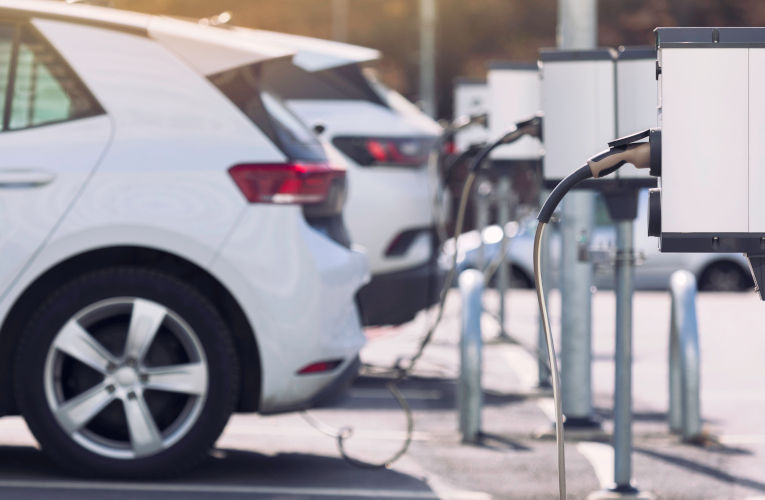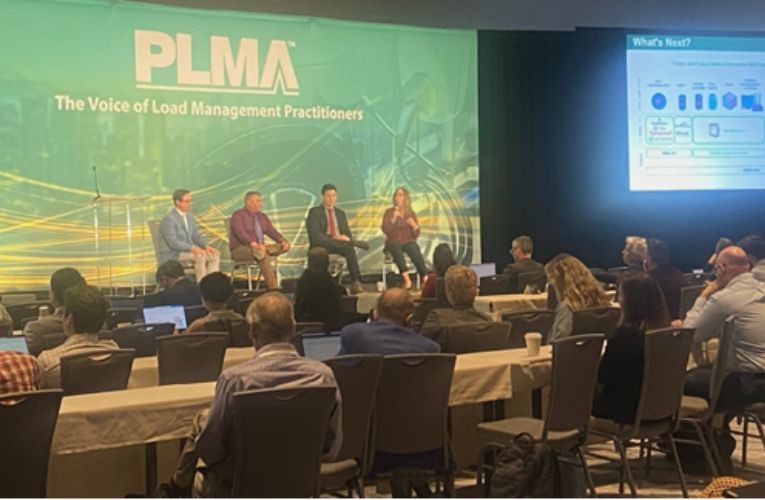
Industry Insights
Accelerate Electric Vehicle Adoption with IIJA Funding
The shift to electrified transportation is accelerating globally. In 2023, approximately 1.6 million electric vehicles (EVs) were sold in the U.S., which is a 60% increase from the 1 million sold nationwide in 2022 and is projected to reach roughly 40 million in 2030.1 In the United States, the Infrastructure Investment and Jobs Act (IIJA) has been instrumental in this transition by promoting the development of EV infrastructure to further support this growth. According to a recent study from the Pew Research Center, roughly six-in-10 Americans now live within two miles of a public EV charging station, and over 61,000 publicly accessible EV charging stations exist across the country as of February 2024.
Key Funding Opportunities for EV Infrastructure
The IIJA has introduced several grant programs to support the expansion of EV infrastructure, remove barriers for consumers and accelerate widespread adoption. In this edition of Itron’s IIJA blog series, we’re taking a closer look at current funding opportunities that can help utilities and cities do exactly that.
Charging and Fueling Infrastructure Grant Program
- The Charging and Fueling Infrastructure Grant Program funds the deployment of publicly accessible EV charging and alternative fuel infrastructure.
- It includes two main tracks: Community Charging and Alternative Grants for local public spaces and Corridor Grants for major travel routes.
- The program prioritizes rural and underserved areas, offering up to 80% of federal cost-share with $1.3 billion in annual funding.
- The current application window is open until Aug. 28, 2024.
Clean Heavy-Duty Vehicles Grant Program
- The Clean Heavy-Duty Vehicles Grant Program is part of the U.S. Environmental Protection Agency’s efforts to reduce air pollution and greenhouse gas emissions from heavy-duty vehicles.
- The program provides grants to replace older, high-emission heavy-duty vehicles and develop infrastructure for cleaner alternatives like EVs or hydrogen-powered vehicles.
- The application deadline is July 25, 2024.
Strengthening Mobility and Revolutionizing Transportation (SMART) Grant Program
- The SMART Program funds projects that deploy advanced technologies to enhance transportation efficiency and safety.
- The program operates in two stages: Stage 1 offers up to $2 million with no match requirement and is specific to proof of concept, pilots and demonstrations for 18 months. Stage 2 provides up to $15 million for 36 months (the maximum project length) for full deployments of successful projects.
- The current application deadline for FY24 Stage 1 is July 12, 2024.
Transform Your Utility’s EV Infrastructure with Itron Solutions
Leveraging IIJA funding alongside Itron’s Grid Edge Intelligence solutions, advanced data analytics and energy management expertise can help utilities manage the transition to electrified transportation more effectively.
Itron’s Grid Edge Distributed Intelligence (DI) Solutions:
- Itron’s DI solution provides real-time insights into EV charging patterns and grid-edge control, enhancing energy management precision.
- Utilizes high-resolution data capture, edge computing and peer-to-peer communication to deliver real-time usage insights.
- Enables dynamic power flow adjustments to balance supply and demand, preventing grid overloads.
EV Managed Charging:
- EV managed charging ensures EV charging stations get the power they need while utilities maintain grid reliability.
- Helps utilities avoid grid overloads through real-time, automated visibility and control.
- Combined with Itron’s grid edge technology, managed charging provides insights into load forecasting and grid management and creates alignment between utilities’ clean energy deployments to meet carbon reduction goals and other incremental benefits.
EV Fleet Solutions:
- Itron’s EV fleet solutions support utilities, cities and fleet operators with scalable approaches to plan and operate EV fleets.
- Helps with infrastructure planning, deployment and managing operations to maximize investments.
- Features Fleet Transition Planning, which aids in scaling and informing grid planning as fleets electrify over time
These funding opportunities give utilities new opportunities to collaborate with their communities on issues related to equity, energy justice and doing the right thing for the people they serve. By partnering with local communities and city transportation fleets, utilities can accelerate their decarbonization goals and deploy technologies that enhance resiliency amid an increase in extreme weather events.
While policy makers continue to debate the pace of the transition away from fossil fuels, the future of transportation is electric. With the adoption of advanced technologies enabled by the IIJA, utilities are well-equipped to meet the rising energy demands that come with it. For more information, reach out to Dave Stensland, business development director, IIJA, or Liz Thompson, business growth manager and sign up for future information and announcements related to IIJA at www.itron.com/iija. Check out other related blogs in our IIJA series here.
Related Articles
HTML Example
A paragraph is a self-contained unit of a discourse in writing dealing with a particular point or idea. Paragraphs are usually an expected part of formal writing, used to organize longer prose.




